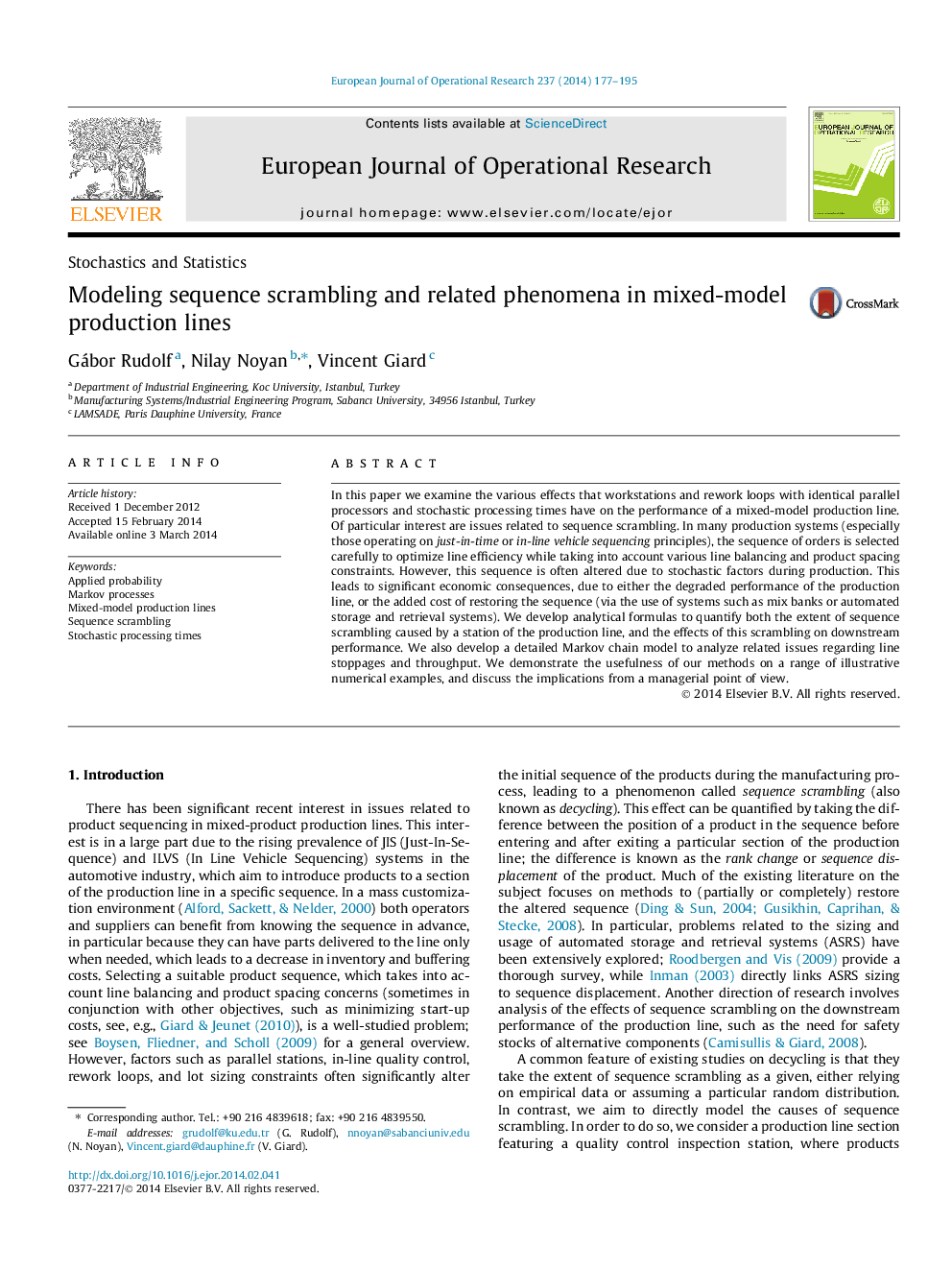| Article ID | Journal | Published Year | Pages | File Type |
|---|---|---|---|---|
| 480981 | European Journal of Operational Research | 2014 | 19 Pages |
•Studied impact of workstations with parallel processors on mixed-model production lines.•Developed Markov chain model to calculate throughput and other performance indicators.•Used Markov model to quantify impact of system parameters on line performance.•Quantified effects of stochastic processing times on extent of sequence scrambling.•Investigated impact of sequence scrambling in presence of combinatorial modularity.
In this paper we examine the various effects that workstations and rework loops with identical parallel processors and stochastic processing times have on the performance of a mixed-model production line. Of particular interest are issues related to sequence scrambling. In many production systems (especially those operating on just-in-time or in-line vehicle sequencing principles), the sequence of orders is selected carefully to optimize line efficiency while taking into account various line balancing and product spacing constraints. However, this sequence is often altered due to stochastic factors during production. This leads to significant economic consequences, due to either the degraded performance of the production line, or the added cost of restoring the sequence (via the use of systems such as mix banks or automated storage and retrieval systems). We develop analytical formulas to quantify both the extent of sequence scrambling caused by a station of the production line, and the effects of this scrambling on downstream performance. We also develop a detailed Markov chain model to analyze related issues regarding line stoppages and throughput. We demonstrate the usefulness of our methods on a range of illustrative numerical examples, and discuss the implications from a managerial point of view.
